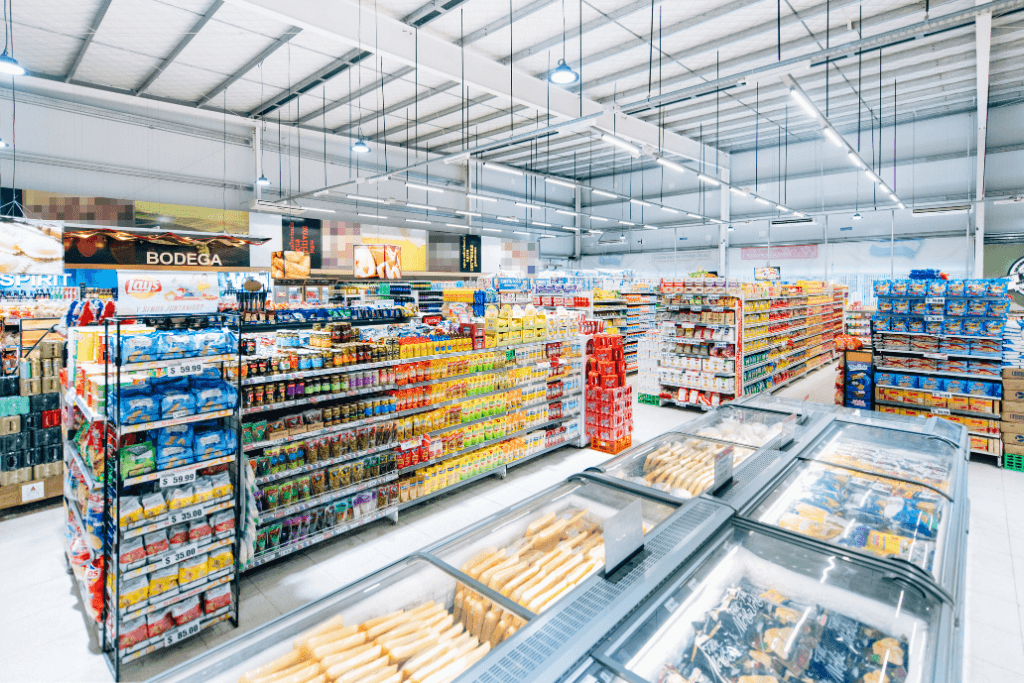The fast-moving consumer goods (FMCG) sector is a cornerstone of the global economy, supplying essential products that cater to billions of people daily. This sector, valued at trillions of dollars, spans diverse categories, including food, beverages, personal care, and household goods. Global FMCG brands have carved a niche, offering unparalleled quality, innovation, and trust.
At Falcon Gallant, we bridge the gap between consumers and international FMCG brands, ensuring access to premium, globally certified products. With our commitment to quality and efficiency, we empower businesses to bring these globally trusted and certified FMCG goods to their markets, aligning with consumer preferences for excellence.
Key Reasons Consumers Prefer International FMCG Brands
Let’s explore the reasons why consumers gravitate toward international FMCG brands, shedding light on their global appeal.
Trust and Quality Assurance
One of the primary drivers of preference for international FMCG brands is their commitment to consistent quality. These brands adhere to stringent global manufacturing practices, ensuring reliable international products that meet consumer expectations every time. Their certifications, such as ISO, HACCP, or organic labels, further enhance trust.
For instance, Nestlé, a global leader in FMCG, maintains rigorous quality control across its operations, ensuring products are both safe and premium. Learn more about their commitment to quality on Nestlé’s website.
Variety and Innovation
Global FMCG brands are at the forefront of innovation, offering a diverse range of products tailored to global markets. Their ability to anticipate and respond to consumer needs keeps them ahead of the curve. Key aspects include:
Diverse Product Range: Offer a wide variety of products catering to diverse international tastes, ranging from Asian-inspired snacks like [specific examples, e.g., seaweed snacks, dumplings] to Western-style breakfast cereals such as [specific examples, e.g., muesli, granola].
Focus on Innovation: Prioritize innovation by investing heavily in research and development. This commitment drives the creation of trendsetting FMCG products.
Emerging Global FMCG Trends: Closely monitor and adapt to emerging global FMCG trends. This includes:
Plant-Based Foods: Developing and expanding its range of plant-based products to cater to the rising demand for meat and dairy alternatives. This could include plant-based proteins, meat substitutes, and dairy-free alternatives.
Ready-to-Eat Options: Focusing on convenient and ready-to-eat options to cater to busy lifestyles. This could include ready-to-eat meals, snacks, and on-the-go options.
Global Appeal and Branding
The branding strategies of global FMCG brands resonate universally. Their strong messaging and cultural alignment create an aspirational value for consumers. Influenced by Western media and pop culture, these brands position themselves as symbols of modernity and sophistication. Think Coca-Cola’s “Share a Coke” campaign or Dove’s focus on real beauty – both embody global branding at its finest.
Availability and Accessibility
Advancements in FMCG online shopping have made international brands more accessible than ever. Major e-commerce platforms and retail partnerships ensure these products are available globally. Wholesalers like Falcon Gallant play a crucial role, leveraging their extensive networks to distribute premium FMCG products efficiently across markets.
Perception of Safety and Hygiene
Consumers perceive international FMCG brands as safer due to their adherence to advanced global manufacturing practices and certifications. Labels like “non-GMO,” “certified organic,” and “FDA-approved” instill confidence. This assurance is particularly significant in categories like baby food and personal care, where safety is paramount.
Status Symbol and Social Influence
Owning products from international FMCG brands often signifies sophistication, modernity, and global exposure. This aspirational value is deeply rooted in consumer psychology and is magnified by the power of social media and influencer culture.
Global FMCG brands such as L’Oréal, Coca-Cola, and Nestlé have built their reputations on delivering high-quality, innovative products that resonate with diverse audiences. For many consumers, using these brands is not just about functionality; it’s about aligning with a certain lifestyle or social status. For instance, owning premium skincare products from L’Oréal Paris or sipping a Starbucks coffee in a reusable tumbler reflects a sense of modernity and exclusivity.
Social media platforms like Instagram, TikTok, and YouTube have revolutionized how consumers perceive and interact with international brands. Influencers and content creators frequently showcase their favorite global FMCG brands, highlighting their perceived quality and style. This creates a ripple effect, as their followers often aspire to use the same products to emulate their lifestyles.
For example: Coca-Cola’s recent “Spills” campaign creatively highlighted the universal love for its beverage by showcasing iconic Coca-Cola spills in everyday scenarios. This campaign resonated with audiences worldwide, turning simple accidents into moments of joy and nostalgia. On platforms like Instagram and TikTok, users enthusiastically recreated and shared their own #CokeSpills moments, transforming a relatable mishap into a viral trend that reinforced Coca-Cola’s role as a beloved, indispensable part of daily life.
Challenges and Counterpoints
While international FMCG brands enjoy immense popularity, they face competition and challenges.
Competition from Local Brands
Local brands often offer affordable alternatives tailored to regional tastes. Their ability to connect with local cultures and provide value-driven products poses a significant challenge. Additionally, the growing preference for locally sourced products underscores the importance of regional authenticity.
Sustainability Concerns
As sustainability gains prominence, consumers are scrutinizing the environmental impact of global brands. From eco-friendly packaging to ethical sourcing, brands are under pressure to meet these expectations. Companies like Procter & Gamble are leading the way by incorporating sustainable practices into their operations.
Conclusion
In a world where consumers are increasingly looking for quality, reliability, and a touch of global sophistication, international FMCG brands stand out. Their ability to maintain consistent quality, offer diverse and innovative product lines, and build aspirational brands has secured their place in the hearts of millions. With the rise of e-commerce and omnichannel retailing, these brands are now more accessible than ever, appealing to a broad spectrum of consumers who value premium experiences and trust certified products.
However, as consumer preferences evolve, challenges such as sustainability concerns and competition from local brands will continue to shape the dynamics of the FMCG industry. International brands are already responding by adopting eco-friendly practices, offering locally tailored products, and leveraging technology to stay ahead.
Falcon Gallant plays a crucial role in bridging the gap between these sought-after global FMCG brands and the end consumer. By ensuring a steady supply of certified, premium FMCG products, Falcon Gallant supports wholesalers, retailers, and distributors in catering to this growing demand. Whether it’s delivering trendsetting FMCG products or reliable international goods, Falcon Gallant is your trusted partner for exploring the dynamic world of international FMCG brands.
Explore Falcon Gallant’s extensive range of international FMCG offerings and stay ahead in this ever-evolving market.
FAQ’s:
Q: Why are international FMCG brands more expensive?
International FMCG brands often come with a higher price tag due to their superior quality, advanced manufacturing practices, and certifications. Additional costs, such as import duties, logistics, and marketing, also contribute to the premium pricing.
Q: Are international FMCG brands worth the higher price?
Yes, many consumers perceive international FMCG brands as worth the price due to their consistent quality, innovative products, and trust in global standards. These brands also offer a sense of prestige and assurance, making them a popular choice for discerning buyers.
Q: Do international brands cater to local tastes and preferences?
Absolutely. Many international FMCG brands now tailor their products to local markets, incorporating regional flavors, packaging styles, and cultural preferences to appeal to diverse audiences. This localization strategy helps them maintain relevance in global markets.
Q: What are some examples of popular international FMCG brands?
Some of the most renowned international FMCG brands include Nestlé, Coca-Cola, Unilever, and Procter & Gamble. These companies offer a wide range of products, from beverages and snacks to personal care and cleaning products, catering to millions of consumers worldwide.
Q: How does Falcon Gallant support the FMCG market dynamics?
Falcon Gallant connects retailers, wholesalers, and distributors with premium international FMCG brands, ensuring access to a wide range of certified, high-quality products. Their robust supply chain solutions and industry expertise make them a reliable partner in the FMCG industry.



